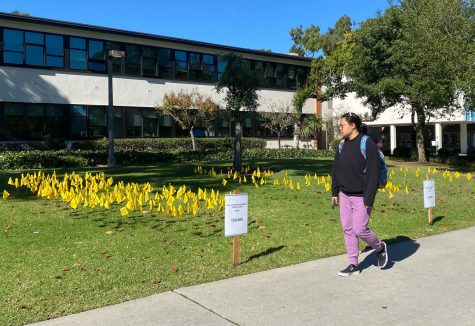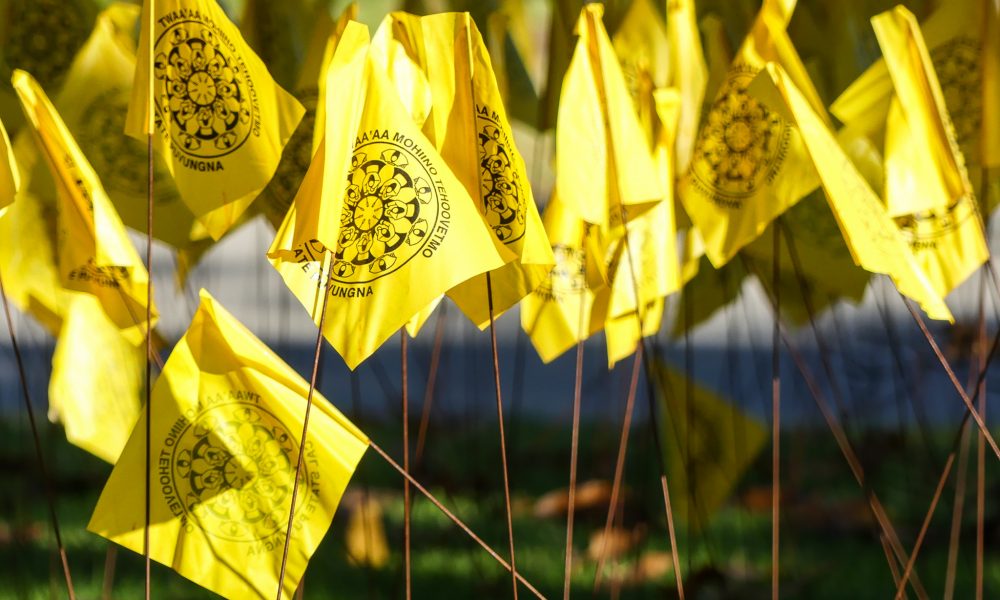Native American Heritage Month is being celebrated through cultural events hosted by the American Indian Student Council (AISC) at Long Beach State all month long.
Also recognized as Cultural Heritage Month, the community celebrates the different Native American cultures within the United States while also examining the issues and struggles of different communities.

Rue Cepeda is the President of AISC and student coordinator of The Puvungna Center. She acknowledged that AISC, formed in 1968, is the only and first Native American organization at the university.
“We have been doing our [university sponsored] cultural heritage month events for a little over five years now,” said Cepeda. “Every year we’re the ones who handle the events, bring promotions to campus and get visibility for Native students.”
CSULB shares history with Native Americans, as the campus is built on the traditional land of the indigenous tribe of the Gabrielino/Tongva/Kizh and Acjachemen/Juaneno.
The campus is part of the village grounds of Puvungna, the principal village of the Gabrielino/Tongva people, according to Cepeda.
“It is said that here at the village of Puvungna it’s the most sacred site for all of the Gabrielino/Tongva people, as well as tribes from all of Southern California and down into Northern Mexico,” said Cepeda.
Puvungna is by the G-2 parking lot at Long Beach State. Cepeda said it’s a 22 acre land plot that was put on the National Register of Historic Places in 1970.
As CSULB continues to recognize Native American heritage, AISC members and allies view the month as the beginning to a brighter future in recognizing the importance of their cultural presence on campus.
“I’m very happy to see how it’s grown over the last few years since we have the smallest ethnic population on campus,” said Cepeda. “We make up about .08% of the population at CSULB. With 37,000 students, that’s only about 100 students or so.”
Cepeda emphasizes the importance of having those cultural experiences on campus that students can relate to through community and creating new bonds with people from one’s own culture and background.
“In prior years, it was kind of a fear that we didn’t have enough representation. But over time, we’ve seen a lot of new students coming in and wanting to learn more about their background,” Cepeda said.
The Puvungna Center, located at USU 310, is the resource center on campus for Native American students to congregate.
Every November a Genocide Flag Installation is set up on the upper quad of campus to honor the long history of genocide the Native Americans in California experienced.
All 300 of the yellow flags read “count what you value” in the Tongva language, to remind the community of the decreasing number of Native Americans in the state.
“It’s something that we really take pride in every year,” said Cepeda. “This year especially because this is the first year that we’ve done it as a teach-in.”
During the teach-in of the installation, AISC invited students to learn about the history of the project as they installed it.
There was a turnout of about 25 people this year and they all got to learn something they wouldn’t have learned in the classroom, according to Cepeda.
Julia Delamare, fourth-year studio art major, said it was refreshing to see the university bring awareness to the genocide of Indigenous people.
“Awareness is important considering the Indigenous history of CSULB. In general it’s not talked about enough in education,” Delamare said.
At CSULB, the office of Multicultural Affairs works with student groups, staff, faculty and the community to host programs throughout the semester.
They host events such as the career Insights for Native Americans which is on Nov. 15., the Health Disparities in Native American Communities Panel on Nov. 17. and the Powwow 101 Social Dance Workshop on Nov. 28.




